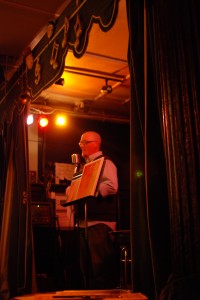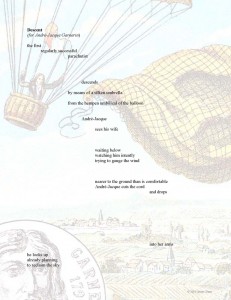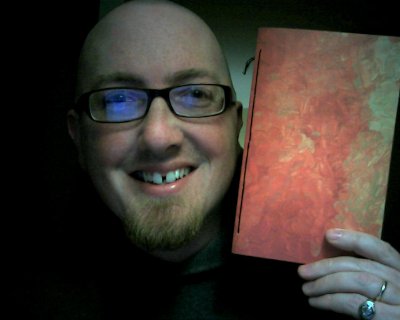Listen to this poem using the player above.


Guilt
1.
The scientist created a machine
that could look back into the past.
He called it Guilt.
When activated, his invention
could whisk the temporal traveler
off to days gone by:
the job left unfinished;
the lie told; the lover jilted.
True, this form of travel had a limited
appeal in the marketplace, but
it was a must for the connoisseur
of despondency, the rueful explorer.
The scientist kept his creation
secured in the topmost room
of his falling-down house,
far from the notice of the
established academic community.
Those who wished to take
a journey into the embittered past
were carefully screened to keep
out the crazies and the masochists,
for he intended his machine to be used
by the pure of intention, if not the pure of heart.
2.
It was on Tuesday last that the scientist
heard a light tapping on his door.
He thought perhaps he’d forgotten
to let the cat in, but when he opened
the door he was surprised to find
a young girl on his front porch,
hair exactingly braided and white socks
pulled up just so. “Mister,†she said,
“I want to take a ride in the machine.â€
He refused, of course, although his
interest was piqued. How could this
child even know of his invention?
“My dear,†he said, “there is nothing
for you here. Run along home.
Someone must be worried about you.â€
She took one step forward,
hand on the doorjamb, eyes fixed on his.
“Mister,†she said, “I’m going to take a ride
in the machine.†There was something
about her, an emanation, an aura,
and before he knew it, the scientist
had stepped back to allow her to pass
into the living room.
“Where is it?†she asked, taking in
each feature of the sparsely appointed room.
“On the top floor, my child,†he said, pointing.
“But you must go alone.â€
She nodded once and began climbing the stairs,
holding the railing with one china-doll hand.
3.
The scientist sat down to wait, sipping the tea
he’d been preparing before the girl’s arrival.
He could hear her on the top landing now,
and then the soft creak of the door as
she entered the room where he kept the machine.
Ah yes, there it was, the throaty rumble
as the machine began to work.
Was that a whimper? he wondered,
straining to hear every sound,
every nuance from the top floor.
Eventually, he could no longer resist,
and began to climb the stairs.
He knew this was a breach of his
standard operating procedure, but this,
this was a special case.
As he neared the open door, the deep note
faded away, disappearing like a ghost
through the wall.
He stepped into the room.
It was empty, save for the chair
and the machine. But then
something caught his eye,
a white flutter under the chair.
He stooped to retrieve the piece
of paper. Written on it, in the assured
script of an adult, were two words:
THANK YOU.
4.
(SAYERSVILLE) – Firefighters
responded to a blaze at a house on
the Sayersville-Freedom line Tuesday
night. The house, owned by Dr. B—-,
a researcher at the university, was nearly
consumed by the fire when the firefighters
arrived on the scene. They focused
their efforts on stopping the blaze from
spreading to the nearby woods. No
human remains were found in the wreckage
of the house, a no cause has yet
been determined. Police say Dr. B—‘s car
is missing, and he did not report to work
at the university this morning.














